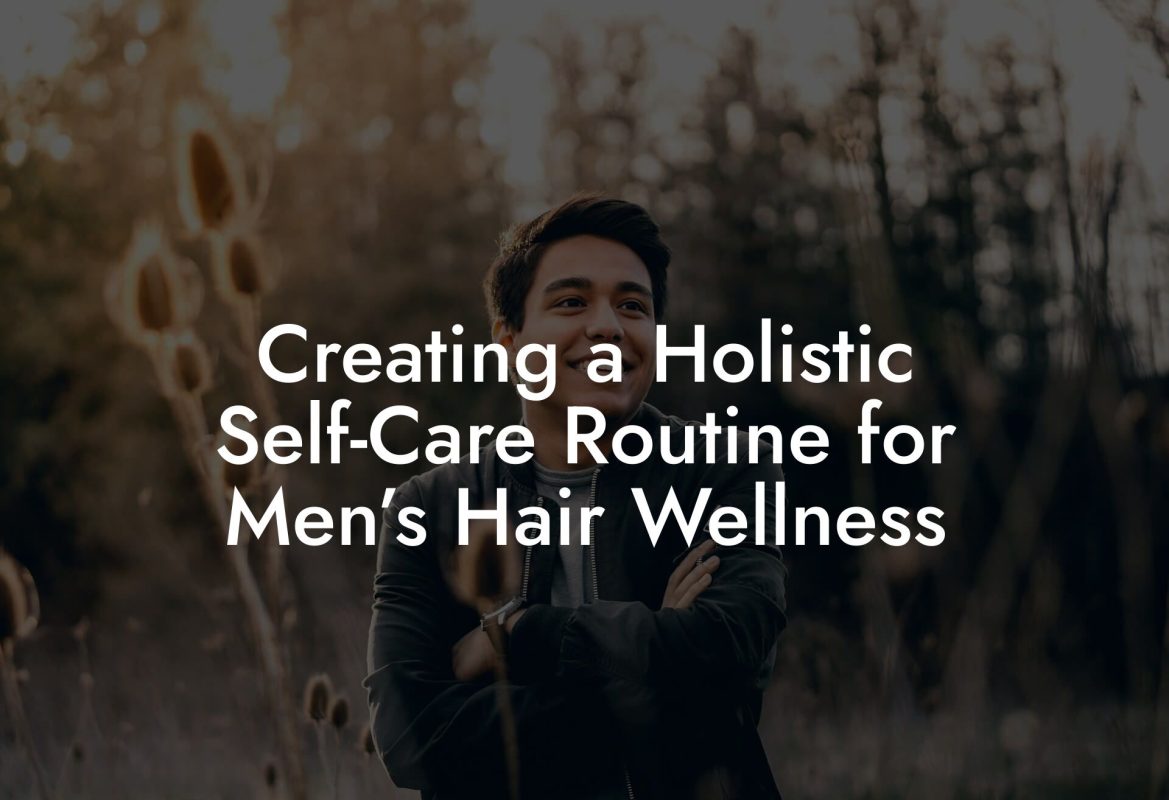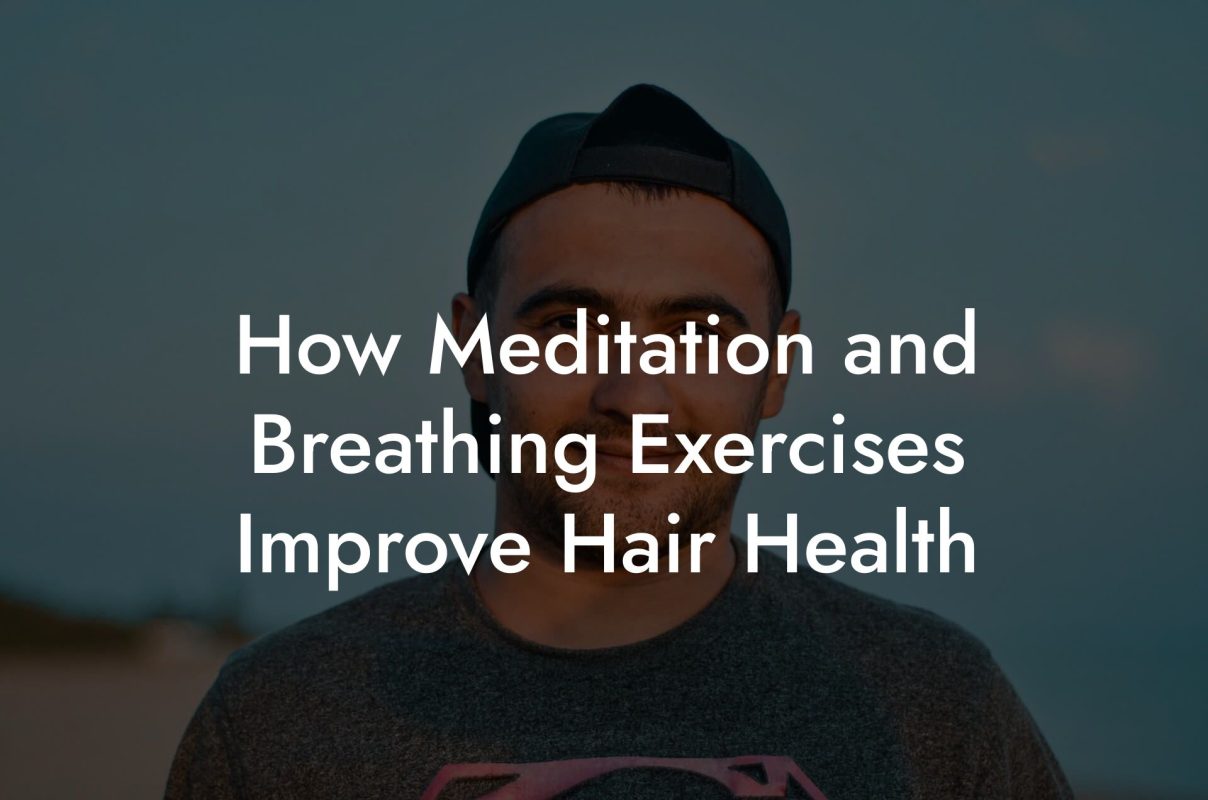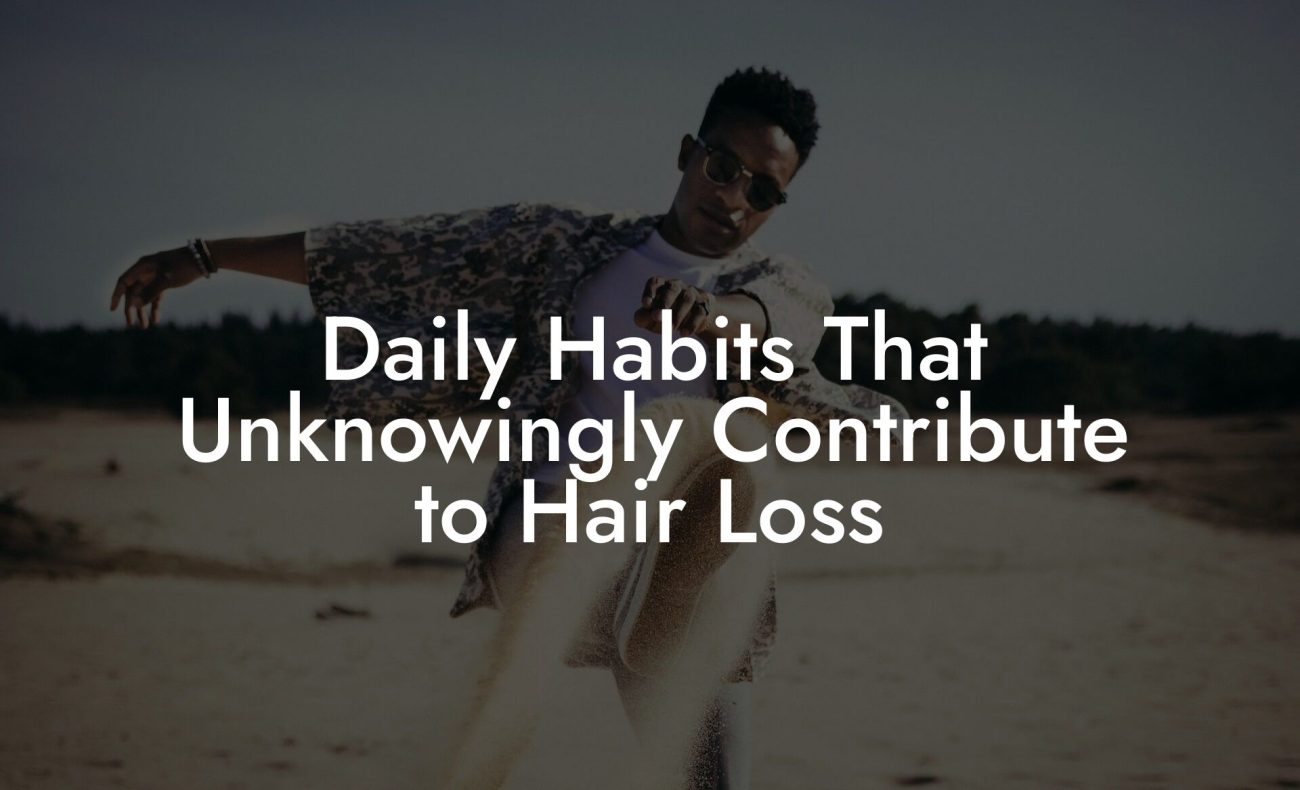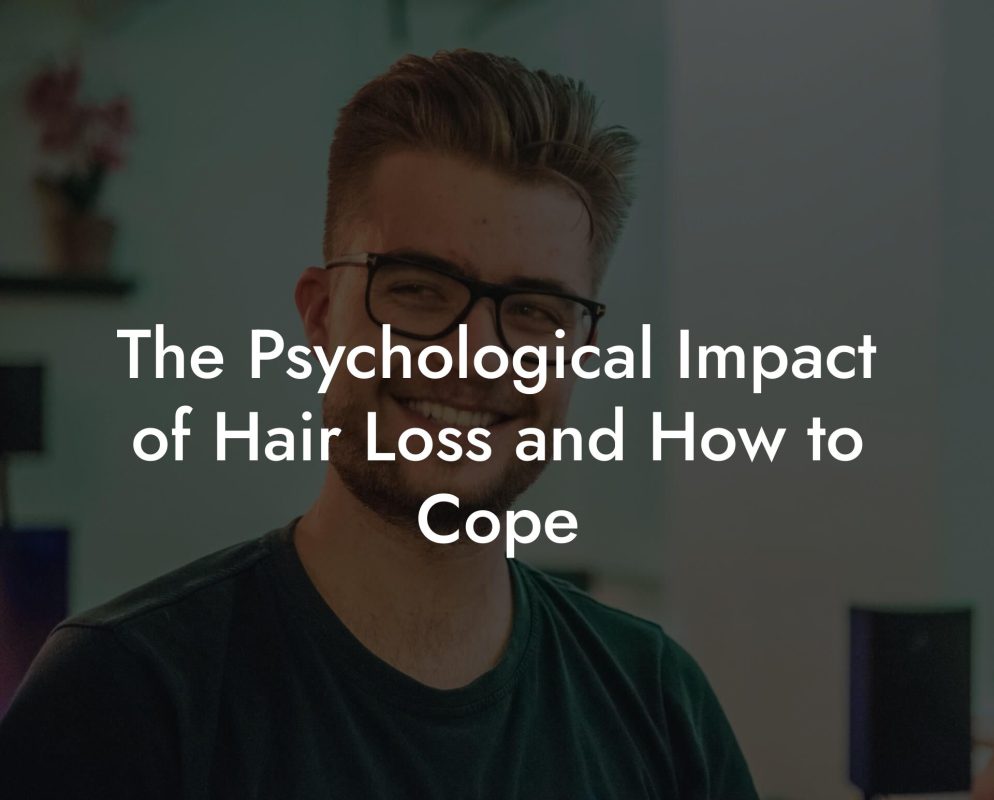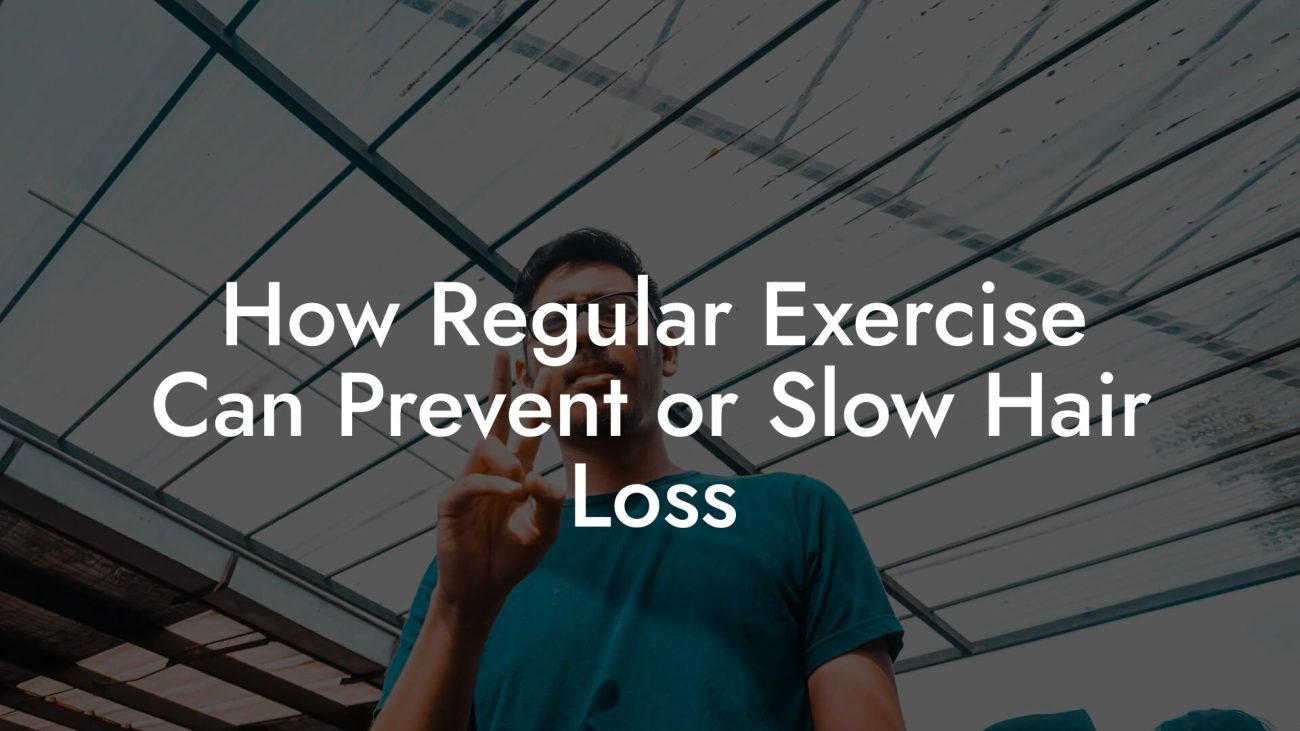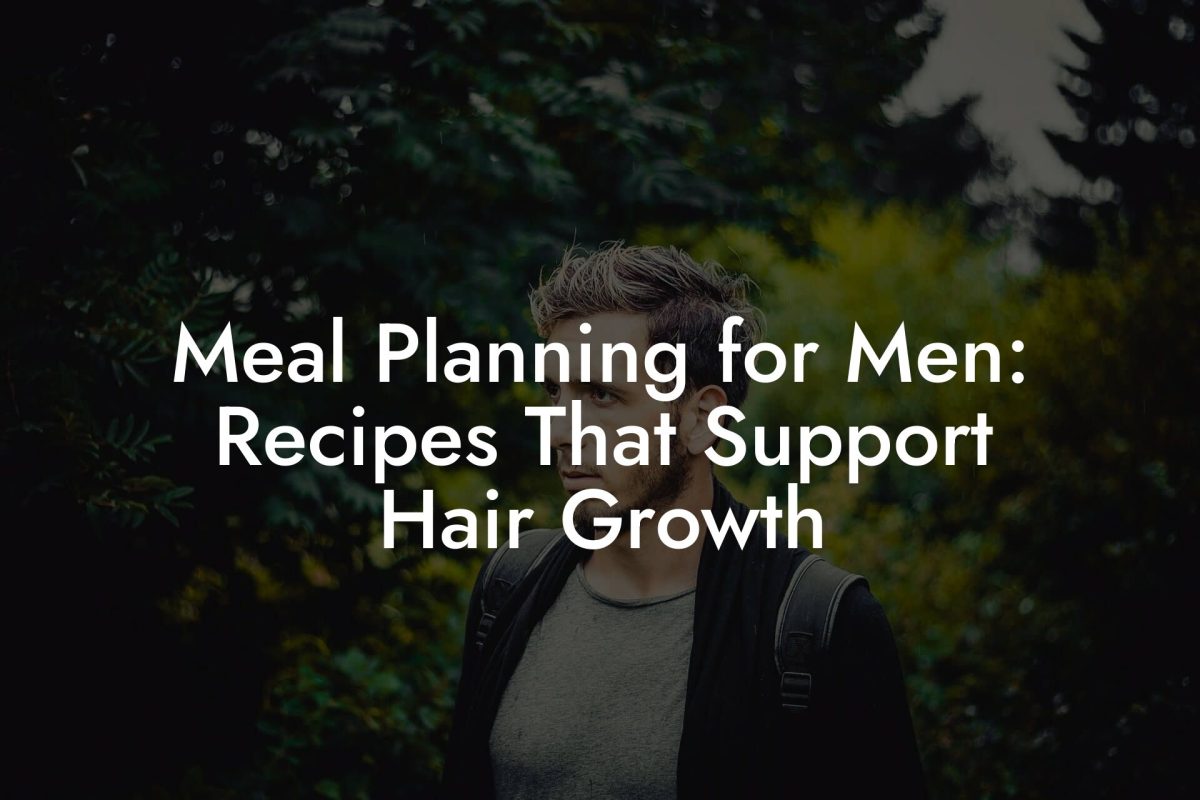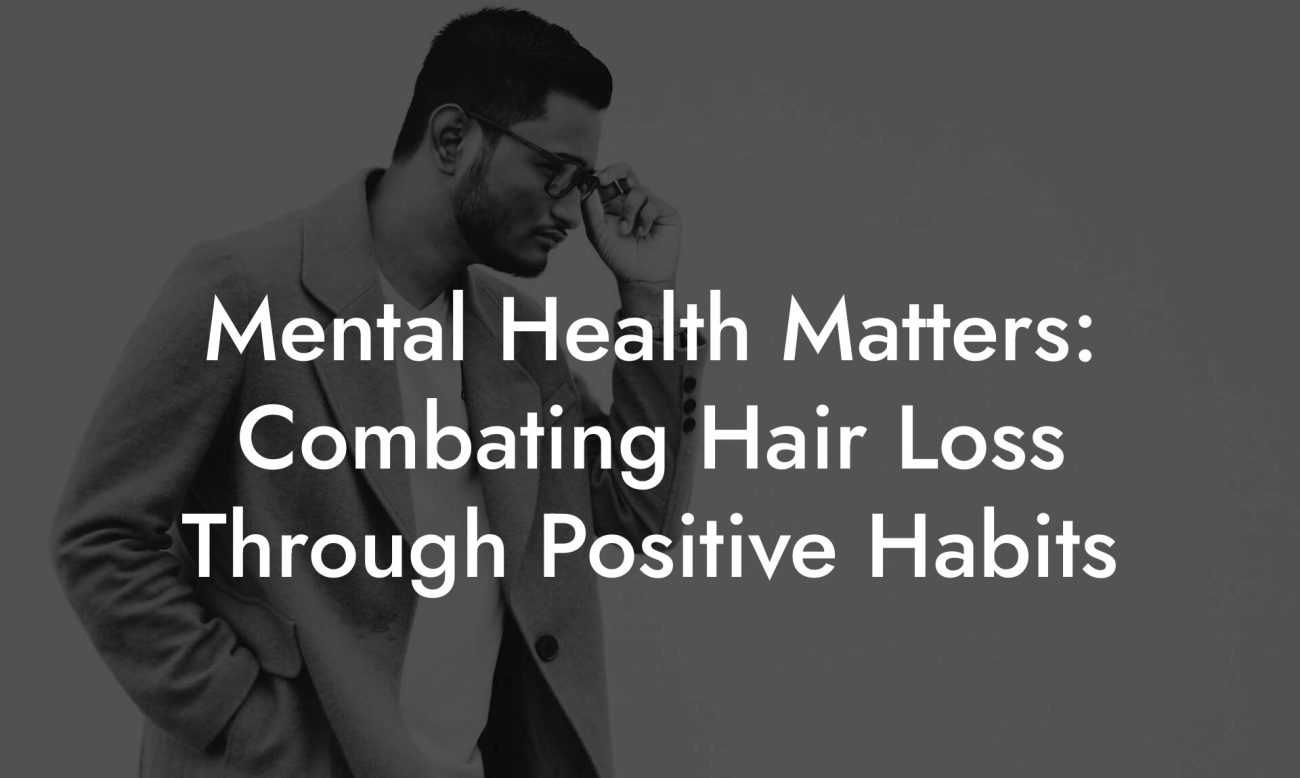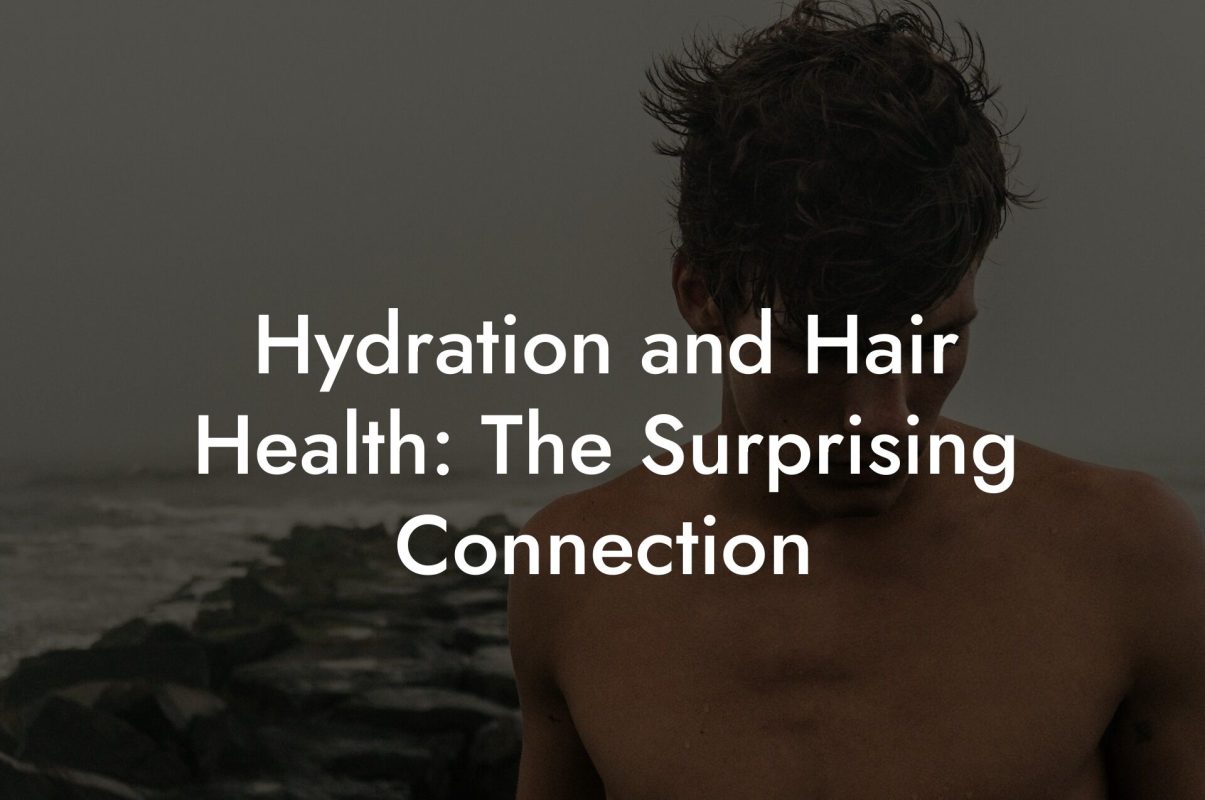Hair Loss Library
Balancing Hormones Naturally: Lifestyle Hacks for Men’s Hair
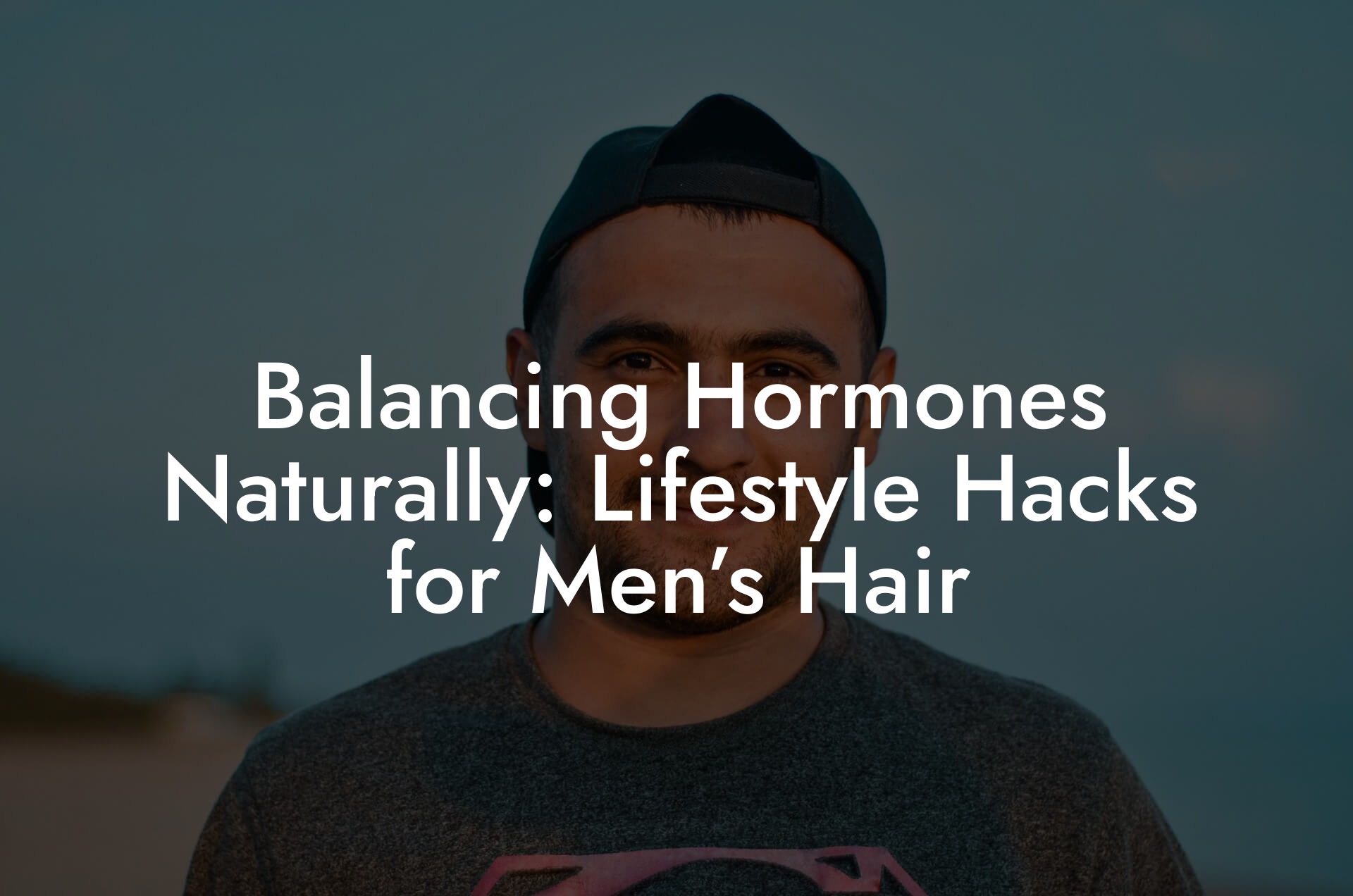
Ever caught yourself wondering if there’s a secret sauce to turning your thinning mane into a luscious crown? If balancing hormones naturally and hacking your lifestyle to boost men’s hair growth sounds like a plan, you’ve landed on the right page. Here at Mane Matrix, we're about ditching embarrassing, expensive consultations and diving headfirst into natural hacks—no lab coats required. Buckle up for a wild ride through science, nutrition, humor, and lifestyle tweaks that are as fresh and unapologetic as your favorite meme.
Understanding the Hormone-Hair Connection
Picture your hair as an overenthusiastic intern in your body’s corporate hierarchy—it needs the right signals to know when to grow, when to rest, and when to show up in glorious fullness. Hormones are the big bosses that send these signals. When your hormonal balance is off-kilter, your hair may start to act out, leaving you with a receding hairline, thinning strands, or even unexpected bald spots.
In men, the interplay between hormones like testosterone and its more notorious byproduct, dihydrotestosterone (DHT), plays a major role in hair health. While testosterone is vital for overall male vitality, elevated levels of DHT can shrink hair follicles, leading to hair loss. But don’t panic—your hormones, like your favorite playlist, can be fine-tuned! By naturally balancing these chemical messengers, you can foster an environment where your hair follicles feel loved and ready to flourish.
With modern pressures, from stress at work to bouncing between a shaky sleep schedule and too many midnight snacks, it’s no wonder our hormones often go haywire. The good news? There are practical, everyday lifestyle hacks that help regulate these hormones, leading to healthier hair and a happier you.
Decoding the Role of Hormones in Hair Health
Let’s get nerdy (just a little) about how your hormones impact your hair. And don’t worry, we’ll keep it fun and engaging.
The Testosterone-DHT Dilemma
Testosterone is like the rockstar of hormones—it boosts energy, muscles, and yes, hair growth. But when testosterone meets the enzyme 5-alpha-reductase, it transforms into DHT, the diva that sometimes steals the spotlight by causing hair follicles to miniaturize. This process is one of the key culprits behind androgenetic alopecia, or male pattern baldness. The goal? Keep testosterone in check while preventing DHT from throwing a tantrum.
The balance is delicate, and it turns out that lifestyle adjustments not only help maintain overall hormonal balance but also manage DHT levels. Think of it like fine-tuning a guitar—you just want to hit the right notes so your hair can play a symphony instead of a sad solo.
Estrogen’s Surprising Role
Yes, that’s right—estrogen isn’t just a lady’s hormone. It plays a part in men’s bodies too, often acting as a counterbalance to testosterone. When levels of estrogen dip too low, or fluctuate wildly, your hair might not get the nurturing environment it needs. This doesn’t mean flooding your system with products meant for a topsy-turvy hormonal cocktail—it’s all about balance.
Your endocrine system is a finely tuned orchestra, and any discord can lead to hair falling out of tune. Recognizing these hormonal signals is your first step toward a healthier mane, and the next sections will cover practical ways to restore harmony.
Lifestyle Factors That Influence Hormonal Health and Men’s Hair
Your hair isn’t living in a vacuum—every decision you make has a ripple effect on your hormones and, by extension, your mane. Here, we break down the everyday factors that could be either your best friend or your worst enemy when it comes to hair loss.
Stress: The Sneaky Saboteur
Let’s be honest: life is stressful. Whether it's deadlines, social media FOMO, or simply the chaos of adulting, stress is always lurking nearby. When stress levels run high, the body releases cortisol, the hormone that puts your hair follicles on high alert. High cortisol can lead to a condition called telogen effluvium—a fancy term for a temporary phase of hair shedding.
The takeaway? Mastering stress can be one of the most effective ways to keep your hair game strong. From mindfulness apps to simply taking a five-minute break to breathe, managing stress is key.
Sleep: The Silent Superhero
If you’re pulling all-nighters like they’re going out of style, your hormones (and hair follicles) are feeling the burn. Sleep is when your body repairs itself, regulates hormones, and builds cellular resilience. When sleep-deprived, the hormonal imbalance can catalyze hair loss.
Aim for a quality snooze—7 to 9 hours per night—and watch not only your overall health improve but also notice the difference in your hair’s strength and shine.
Physical Activity: Sweat It Out
Exercise isn’t just about beach bodies and gym selfies—it plays a pivotal role in hormone regulation too. Regular physical activity helps reduce stress, balance cortisol, and improve overall blood circulation. All these factors can contribute to healthier hair growth.
Find a routine that works for you—be it weightlifting, yoga, or an urban cycling adventure—and turn your workouts into a time where your hormones get their groove back.
Diet and Gut Health: Nourish to Flourish
Ever heard the saying “you are what you eat”? Turns out, it applies to your hair as much as it does to your waistline. A healthy gut means better nutrient absorption, and nutrients are the building blocks for your hair. Foods rich in vitamins A, C, D, E, and biotin are especially beneficial for your follicles.
Junk food can wreak havoc, not just on your waist but also on your hormonal balance. Eating clean and balanced not only fuels your day but also provides the essential nutrients to keep hair strong and resilient.
Essentials of Natural Hormone Balance for a Vibrant Mane
Let’s break down some everyday lifestyle hacks that can help you balance your hormones naturally and, by extension, give your hair the VIP treatment it deserves.
Mindful Meditation and Deep Breathing
Imagine hitting the pause button on your racing mind. Mindfulness meditation and deep breathing exercises have a potent effect on reducing cortisol levels. These practices aren’t just for monks; even a few minutes per day can recalibrate your system. With a calmer hormonal environment, your hair follicles can focus on growth.
Apps like Headspace or Calm can guide you through short, refreshing sessions—think of them as yoga for your brain, cheering for your hair from the sidelines.
Optimizing Your Sleep Routine
Consistent, quality sleep is like a nightly tune-up for your body. Developing a sleep ritual—dimming the lights, disconnecting from screens, and maybe reading a book (yes, actual paper books!)—can decrease cortisol levels and promote the production of the growth hormone. A well-rested body is a veritable powerhouse of regeneration.
Experiment with blackout curtains, white noise machines, or even an old-school sleep mask. Your hair will thank you for every minute of deep, uninterrupted sleep.
Balancing Your Eating Habits
Time to put your fork where your hair is. Eating a balanced diet, rich in lean proteins, healthy fats, and plenty of fruits and vegetables, helps define the foundation for hormone regulation. Foods loaded with antioxidants combat oxidative stress, while whole grains and lean proteins support tissue repair.
Incorporate foods like salmon, avocados, spinach, and berries into your diet to help keep hormones steady. And remember, hydration is key—water isn’t just for your morning coffee ritual; it’s also critical for proper cellular function.
Regular Exercise: More Than Just a Gym Selfie
Exercise is a multi-tasking wonder—burns calories, reduces stress, and even boosts testosterone levels to a healthy extent while managing DHT production. Whether you're hitting the gym, jogging in the park, or dancing like no one’s watching, moving your body releases endorphins that help balance hormones and keep hair follicles nourished.
The key here is consistency. Even moderate physical activity every day can create a ripple effect that helps shift your entire hormonal balance toward a more favorable state for hair growth.
Diet and Nutrition: The Natural Elixir for Balanced Hormones and Hair Growth
Ever wondered how your morning smoothie or late-night salad could be a secret weapon in your hair care arsenal? Nutrition plays a pivotal role in balancing hormones and ushering in robust hair growth. Here’s how you can eat your way to a healthier head of hair.
Anti-Inflammatory Foods to the Rescue
Chronic inflammation can disrupt the delicate hormonal balance necessary for hair growth. Incorporate anti-inflammatory foods such as leafy greens, cruciferous vegetables (broccoli, kale), and berries into your diet. These nutrient powerhouses combat oxidative stress and reduce the inflammatory signals that may trigger unwanted hormonal spikes.
Not a fan of greens? Think of a colorful salad as a work of art—a riot of vibrant hues that not only look Instagram-worthy but also serve as an ample source of vital nutrients.
Fueling Up with Lean Proteins and Healthy Fats
Your hair is made up of protein, so it only makes sense to load up on lean proteins like chicken, fish, beans, and legumes. These proteins provide the amino acids necessary for keratin production—the fibrous protein that makes up the majority of your hair structure.
Healthy fats are equally important. Omega-3 fatty acids—found in fatty fish, walnuts, and flaxseeds—help in reducing inflammation and balancing hormones. These fats are like the unsung heroes that keep your follicles in tip-top shape.
Key Vitamins and Minerals for Hair Wellness
Vitamins A, C, D, E, and the B complex (especially biotin) are essential nutrients for hair growth. Vitamin D, for example, assists in hair follicle cycling, while biotin ensures your hair remains strong and less prone to breakage.
Include a mix of vitamin-rich fruits and vegetables, and consider a multivitamin if your diet is lacking. After all, a daily dose of nature’s best can do wonders to balance hormones and stimulate those precious strands to grow.
Hydration: The Underestimated Hero
Never underestimate the power of water. Hydration helps transport nutrients to your hair follicles, maintains skin elasticity, and facilitates detoxification. Make it a ritual to sip water throughout the day—perhaps add a slice of lemon for an extra zing and a dose of vitamin C.
Exercise, Stress Management, and Sleep: The Triple Threat Against Hair Loss
We’ve already touched on why these pillars are essential, but let’s dive deeper. Think of exercise, stress management, and sleep as the ultimate trio in your hair care squad. Ignoring any one of them is like trying to make a smoothie without the fruit—you’re just not getting the full flavor.
The Impact of Exercise on Hormonal Equilibrium
Regular physical activity doesn’t just sculpt your muscles; it also fine-tunes your hormones. Whether it’s a brisk run, weight training, or even a dance-off in your living room, exercise improves blood circulation and reduces cortisol levels. This balanced hormonal milieu is a boon for your hair, ensuring that DHT is kept in check while promoting overall vitality.
Stress Management Techniques that Work
Stress is one of the most significant culprits behind hormone-induced hair loss. Embrace practical stress management techniques like mindfulness meditation, journaling, or even a hearty laugh with friends. Even setting aside five minutes to unplug from your phone and simply breathe can work wonders.
After all, when you’re chill, your hormones behave—a happy mind equals happy hair.
Adequate Sleep: The Ultimate Beauty Regimen
Quality sleep is more than just a luxury—it’s a necessity for hormonal balance. Your body repairs itself during sleep, balancing hormone production and repairing tissues, including those delicate hair follicles. Cultivate a sleep routine that minimizes screen time, ensures a dark, cool atmosphere, and embraces a regular schedule, so the benefits cascade into the vitality of your hair.
Natural Supplements and Herbal Remedies: Boosting Your Mane from the Inside Out
Sometimes, even a balanced diet and consistent lifestyle habits can benefit from a little extra help. Nature has given us an abundance of supplements and herbal remedies that not only support hormone balance but also boost hair growth. Let’s explore some popular options.
Biotin and Collagen
Biotin, often hailed as the “hair vitamin,” is a staple for many men aiming to prevent hair loss. It aids in keratin production and, when paired with collagen supplements, can help reinforce hair structure. These supplements are like the dynamic duo your follicles have been waiting for.
Herbal Allies: Saw Palmetto and Ginseng
Saw palmetto is one of the go-to natural remedies believed to reduce the conversion of testosterone to DHT. Meanwhile, ginseng is celebrated for its ability to boost overall vitality and reduce stress—a must-have combo for balancing hormones. Think of saw palmetto as a bouncer at your hair follicle club, keeping the rowdy DHT in check.
As with any supplement, it’s important to consult a professional before starting a new regimen.
Adaptogens: The Stress-Busting Herbs
Adaptogens like ashwagandha, rhodiola, and holy basil work to stabilize your body’s stress response. These herbaceous helpers can lower cortisol levels, allowing your hormones to realign in favor of healthy hair growth. Incorporating adaptogens into your diet, whether through teas, powders, or capsules, can add an extra layer of defense against stress-induced hair loss.
These natural supplements are not magic potions, but they can complement your lifestyle hacks and dietary choices, creating a holistic strategy for hair revitalization.
Embracing Modern Lifestyle Hacks for Men’s Hair
It’s not all old-school remedies and ancient wisdom—modern science has some cool hacks too. From tech-savvy devices to revolutionary grooming products, there are plenty of ways to integrate modern solutions into your natural hair care routine.
Scalp Massagers and Laser Therapy
Scalp massagers are not just a fancy gadget to show off on Instagram; they can stimulate blood flow to your hair follicles, promoting nutrient delivery and growth. For those who want to invest in the future of their hair, laser therapy devices offer another cutting-edge option. These non-invasive treatments are designed to revitalize your scalp and encourage a natural hair growth cycle.
Smart Hair Care Routines
Incorporating smart technology into your grooming routine can seem like a scene from a sci-fi movie. But apps that track hair health, smart mirrors that analyze scalp condition, and even personalized hair care subscription boxes ensure you’re always in the loop. These tools help you tailor your care routine to what's best for your unique hair type and lifestyle.
Remember, the goal is to marry natural remedies with intelligent, modern solutions to create a holistic regime that works in harmony with your body.
Real-Life Transformations: Case Studies of Natural Hair Revival
Nothing spices up a good plan like hearing real stories of transformation. Here are a few case studies that illustrate how men have reclaimed their hair and confidence through natural hormone-balancing lifestyle hacks.
Case Study 1: From Stress-Induced Shedding to a Fuller Mane
Mark, a 32-year-old digital marketer, battled severe hair shedding during a particularly stressful period at work. With little patience left for expensive treatments that made him feel like a lab rat, he began incorporating daily meditation, regular workouts, and a nutrient-dense diet rich in omega-3s and antioxidants. Within months, not only did his stress levels drop, but his hair also began to regain the thickness it once had. Mark swears that adding a daily dose of ashwagandha to his tea routine was the turning point in his journey—from receding hairlines to a bold, fuller mane.
Case Study 2: Overhauling a Chaotic Lifestyle for Lasting Results
Ryan, a 28-year-old creative freelancer, was known for his erratic sleep patterns and love for high-energy social events. After noticing early signs of hair thinning, he decided to take a holistic approach. He reworked his sleep schedule, embraced a balanced, anti-inflammatory diet, and added regular scalp massages into his routine. Combined with some cutting-edge laser therapy sessions on weekends, his hair health saw a remarkable turnaround. Ryan now credits his newfound success to a disciplined yet flexible lifestyle that prioritizes both his health and social life.
Case Study 3: Quality Over Quantity—Small Changes, Big Impact
Tom, a 40-year-old entrepreneur, didn’t have time for drastic lifestyle overhauls. Instead, he focused on small, consistent changes—like swapping processed snacks for nutrient-rich alternatives, using a smart scalp massager during his morning shower, and integrating a quick meditation session into his daily routine. Over a year, Tom experienced significant improvements in hair density and overall scalp health. His journey demonstrates that it’s not about overnight miracles but rather the power of incremental choices leading to sustainable results.
Designing Your Personalized Plan: Mastering the Art of Natural Hormone Balance
No two manes are identical, and neither are their journeys. Crafting your own personalized plan involves understanding your unique challenges, embracing what works for your lifestyle, and continuously fine-tuning your approach. Below is a roadmap to help you get started on the path to natural hormone balance and vibrant hair growth.
Step 1: Self-Assessment and Goal Setting
Begin by taking stock of your lifestyle. Are you frequently stressed? Do you struggle with sleep? What does your diet look like? Set clear, realistic goals—whether it’s reducing hair shedding, increasing density, or simply improving overall scalp health.
Step 2: Embrace a Holistic Approach
Your action plan should integrate physical exercise, mindful stress management, quality sleep, and nutrition. Mix and match practices such as meditation sessions, regular workouts, a balanced diet, and perhaps even natural supplements—all chosen with your unique lifestyle in mind.
Step 3: Experiment and Find What Works
There’s no one-size-fits-all solution here. Try different hair care routines, supplement regimens, and lifestyle tweaks. Track your progress over time—jot down how you feel, notice changes in your hair, and adjust accordingly. Use technology if it helps: apps and digital trackers can provide valuable insights into your sleep patterns, stress levels, and even hair health.
Step 4: Consistency is Key
Even the best plan only works if you stick to it. Cultivate a routine. Celebrate small victories—like a day with less hair shedding or a new compliment on your hair’s shine—and let those motivate you to keep going.
Step 5: Seek Guidance When Needed
Sometimes, consulting with a friend, a professional, or even browsing reputable online communities can provide new insights and encouragement. Remember, this journey is yours, but you don’t have to walk it alone.
By designing a personalized plan that respects your unique body and lifestyle, you pave the way for a balanced hormonal environment where your hair not only survives but thrives.
Resources and Community Support: Your Next Steps
Transforming your hair journey is about more than just individual efforts—it’s about building a supportive community of like-minded individuals who understand that natural solutions are the way forward. Dive into online forums, social media groups, and expert blogs where men discuss their experiences and success stories in balancing hormones naturally.
Look for webinars, podcasts, and virtual meet-ups that discuss everything from nutritional hacks to the latest advancements in non-invasive hair care technology. Mane Matrix is dedicated to being that guiding light, providing practical advice, and demystifying the science behind hair loss without the awkward doctor visits and hefty bills.
Whether you’re just starting on your journey or looking to fine-tune your routine, the collective wisdom of community support can be a game-changer. Engage in discussions, ask questions, and share your triumphs and hurdles. Your story might just be the inspiration someone else needs to take that leap toward a fuller, healthier mane.
As you explore your next steps, be curious, be bold, and be kind to yourself. Remember: every tweak you make—no matter how small—adds up to sustainable, long-term change.
Frequently Asked Questions About Balancing Hormones Naturally for Men’s Hair
We know that sometimes you have questions that need quick answers. Here are some of the most common questions on balancing hormones naturally and fighting hair loss, with insights that blend humor, science, and real-world practicality.
1. How do hormones affect men’s hair loss?
Hormones like testosterone and DHT play a central role in hair health. While testosterone supports overall vitality, too much conversion to DHT can shrink your hair follicles, leading to thinning hair or bald spots.
2. Can natural lifestyle changes really reverse hair loss?
Yes! By managing stress, improving your diet, getting ample sleep, and staying active, you create an environment that helps balance your hormones naturally—leading to healthier, fuller hair over time.
3. Are supplements like biotin and saw palmetto effective?
Many men have seen positive results with supplements such as biotin for keratin production and saw palmetto to balance DHT levels. However, results can vary; it’s best to consult a professional to tailor the right regimen for you.
4. How quickly can I expect to see results from lifestyle changes?
Changes won’t happen overnight, but with consistent efforts over a few months, many men start noticing improvements in both hair density and scalp health. Patience and consistency are key.
5. Do I need expensive products or treatments to make a difference?
Not at all! Many effective solutions are natural and cost-friendly. Focus on overall lifestyle improvements—proper diet, regular exercise, stress management, and simple, effective grooming habits often go a long way.
6. How do I know if my hair loss is hormone-related?
If you notice thinning at the crown or a receding hairline while dealing with other hormonal symptoms (like stress or sleep issues), hormonal imbalance may be at play. A professional assessment can help pinpoint the causes.
7. Can modern tech gadgets really help with my hair care routine?
Absolutely. Smart devices like scalp massagers and apps that track your health can offer valuable insights and subtle nudges to keep your routine on track.
8. Is it possible to balance my hormones without medication?
Many men achieve significant improvements through natural methods alone. Lifestyle changes, proper nutrition, and stress management can work wonders in balancing hormones naturally.
9. What if my hair loss is genetic?
Genetics do play a role, but a balanced hormonal environment can slow the progression and improve hair health. Even if you’re predisposed to hair loss, natural strategies can help maintain maximum hair density.
10. Where can I find more guidance on natural hair care?
Mane Matrix and other reputable online communities, blogs, and expert resources offer ongoing advice and shared experiences on balancing hormones for a healthier mane.
Your Journey to Empowered, Natural Hair Wellness
Embracing a holistic, natural approach to balancing your hormones and nurturing your hair is not just about stopping hair loss—it’s about celebrating every aspect of your health. By melding science with everyday lifestyle hacks, you can create a plan that works for you, letting your personality shine through your hair (and keeping that receding hairline at bay).
Every mindful breath, every well-planned meal, every moment of quality sleep contributes to a balanced hormonal profile that ultimately supports a vibrant head of hair. The journey might seem long, and there will be days when your hair feels like it’s on a coffee break—but every effort counts.
So go ahead, experiment with your new regimen, laugh off the setbacks, celebrate the small wins, and join a community of men who understand that a naturally balanced approach is the coolest solution to hair loss. Your mane isn’t just hair—it’s a statement about your commitment to living life on your own terms.
Whether you’re armed with a plate full of nutrient-dense foods, a nightly meditation routine, or simply a few modern gadgets to keep you in check, remember: every positive step you take brings you closer to a healthier, fuller head of hair. Your journey to natural hair wellness starts now—because real style comes from within.
If you loved this article... Dive deeper into the world of mens hair loss with our most popular sections. If there is anything you think is missing or anything you would love for us to write about, just give us a shout.





